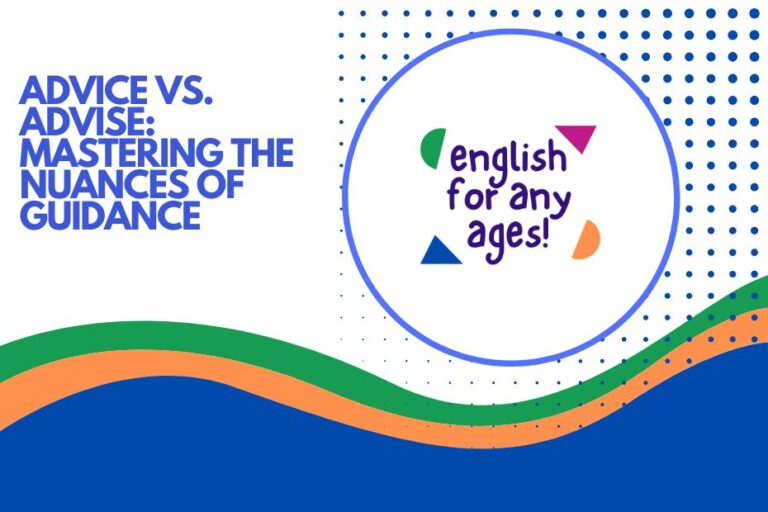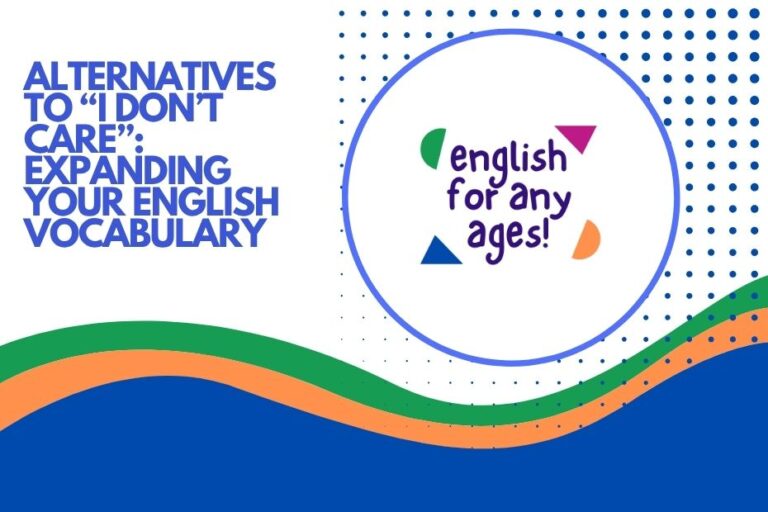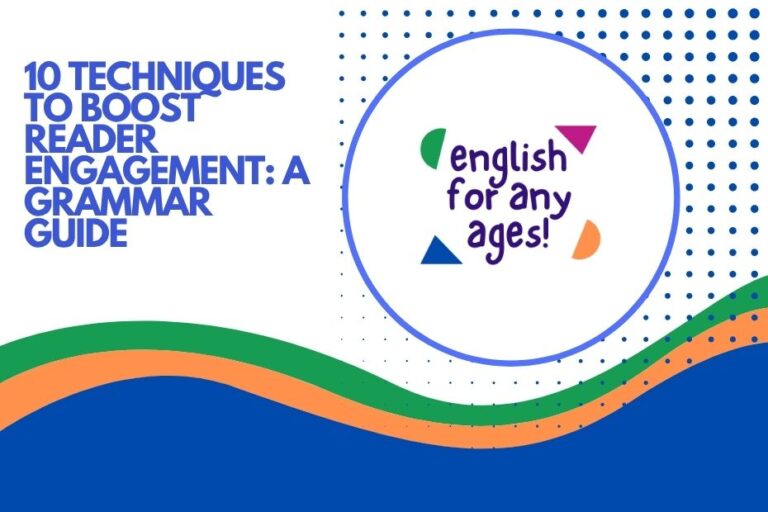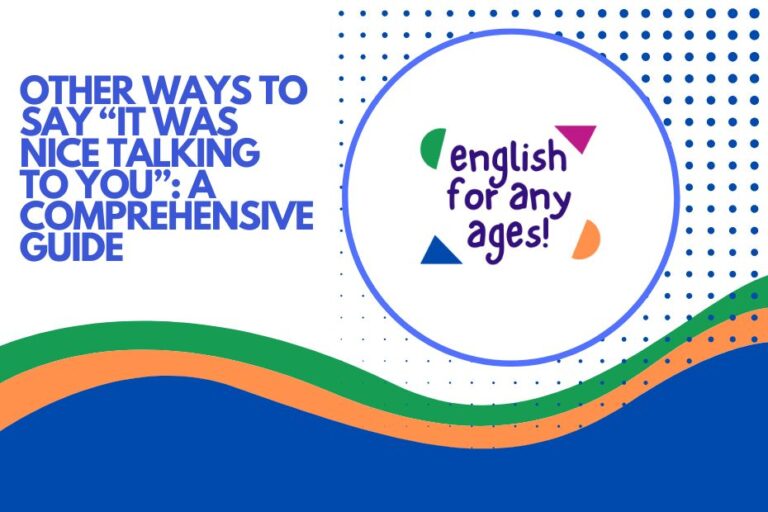Mastering “Excels”: A Comprehensive Guide to Correct Usage
Understanding how to use the word “excels” correctly is crucial for clear and effective communication in English. This seemingly simple word can be tricky because its usage depends on subject-verb agreement and the context of the sentence.
Mastering the use of “excels” will not only improve your grammatical accuracy but also enhance the clarity and precision of your writing. This guide is designed for English language learners, students, and anyone who wants to refine their understanding of English grammar.
We’ll cover everything from the basic definition to advanced usage, providing plenty of examples and practice exercises along the way.
This article provides a comprehensive overview of the word “excels.” We’ll start with a clear definition and then delve into the structural rules that govern its use. We’ll explore numerous examples in different contexts and address common mistakes to help you avoid errors.
By the end of this article, you’ll have a solid understanding of how to use “excels” confidently and correctly in your own writing and speech.
Table of Contents
- 1. Definition of “Excels”
- 2. Structural Breakdown
- 3. Usage Rules
- 4. Examples of “Excels” in Sentences
- 5. Common Mistakes
- 6. Practice Exercises
- 7. Advanced Topics
- 8. Frequently Asked Questions (FAQ)
- 9. Conclusion
1. Definition of “Excels”
The word “excels” is the third-person singular simple present indicative form of the verb “to excel.” To understand “excels,” we must first understand the verb “to excel.” To excel means to be exceptionally good at or successful in an activity or subject. It implies surpassing others or exceeding expectations.
Classification: “Excels” is a verb, specifically a dynamic verb, which means it describes an action or process. It’s also a transitive verb when it takes an object (e.g., “He excels at mathematics“) and intransitive when it doesn’t (e.g., “She excels”).
Function: In a sentence, “excels” functions as the main verb, indicating what the subject is doing or being in relation to a particular skill or area. It demonstrates a high level of competence or achievement.
Contexts: “Excels” is commonly used in academic, professional, and personal contexts to describe someone’s strengths or accomplishments. It can be used to describe skills, talents, or performance in various fields.
2. Structural Breakdown
Understanding the structure of sentences using “excels” is key to using it correctly. The basic sentence structure is:
Subject + Excels + (at/in + Noun/Gerund) + (Optional Adverbial Phrase)
Let’s break down each element:
- Subject: The person or thing performing the action of excelling. This is typically a singular noun or pronoun (e.g., “He,” “She,” “John,” “The student”).
- Excels: The third-person singular form of the verb “to excel.” It agrees with singular subjects in the present tense.
- (at/in + Noun/Gerund): This prepositional phrase specifies the area in which the subject excels. “At” is often used with activities, while “in” is used with subjects or fields. A gerund is a verb form ending in ‘-ing’ that functions as a noun (e.g., “He excels at playing the piano”).
- (Optional Adverbial Phrase): This phrase provides additional information about how or why the subject excels (e.g., “She excels due to her hard work“).
Subject-Verb Agreement: The most important rule is subject-verb agreement. Since “excels” is the third-person singular form, it must be used with singular subjects like “he,” “she,” “it,” or singular nouns. For plural subjects or the pronouns “I,” “you,” “we,” and “they,” the base form “excel” is used.
Example: She excels at painting, particularly in watercolor.
3. Usage Rules
Several rules govern the proper use of “excels.” Adhering to these rules ensures grammatical accuracy and clarity.
3.1 Subject-Verb Agreement
As mentioned earlier, subject-verb agreement is crucial. “Excels” is used with singular subjects, while “excel” is used with plural subjects and the pronouns “I,” “you,” “we,” and “they.”
Correct: He excels in mathematics.
Incorrect: He excel in mathematics.
3.2 Prepositions: “at” vs. “in”
The choice between “at” and “in” depends on the context. Generally, “at” is used with activities or skills, while “in” is used with subjects or fields of study.
Correct: She excels at playing the violin. (activity)
Correct: She excels in biology. (subject)
3.3 Use of Gerunds
When referring to an activity, a gerund (verb + -ing) is often used after “at.”
Correct: He excels at coding.
Incorrect: He excels at code.
3.4 Adverbial Modifiers
Adverbs can be used to modify the verb “excels,” adding more detail about the degree or manner of excelling.
Correct: She consistently excels in her studies.
Correct: He truly excels at public speaking.
3.5 Avoiding Redundancy
Avoid using “excels” in a way that is redundant or repetitive. Ensure that the sentence adds meaningful information.
Redundant: She excels at being excellent.
Better: She excels in all her endeavors.
4. Examples of “Excels” in Sentences
To illustrate the use of “excels,” let’s examine a variety of sentences categorized by context.
4.1 Academic Context
This table provides examples of “excels” used in an academic setting, showcasing different subjects and skills.
| Sentence | Explanation |
|---|---|
| She excels in mathematics, particularly in calculus. | Indicates her strong performance in a specific subject. |
| He excels at writing essays, demonstrating advanced analytical skills. | Highlights his proficiency in a specific academic skill. |
| The student excels in all her courses, consistently earning top grades. | Shows overall academic excellence. |
| Sarah excels at learning new languages, quickly grasping complex grammar rules. | Demonstrates a talent for language acquisition. |
| He excels in physics, displaying a deep understanding of theoretical concepts. | Indicates a strong grasp of a challenging subject. |
| She excels at research, conducting thorough and insightful studies. | Highlights her skills in academic investigation. |
| The team member excels in data analysis, providing valuable insights. | Shows proficiency in a specific analytical skill. |
| He excels at problem-solving, devising creative solutions to complex issues. | Highlights his ability to find effective solutions. |
| She excels in history, demonstrating a comprehensive understanding of past events. | Indicates a strong knowledge of historical facts and context. |
| He excels at public speaking, delivering engaging and persuasive presentations. | Shows his talent for effective communication. |
| She excels in chemistry, conducting experiments with precision and accuracy. | Highlights her skills in scientific experimentation. |
| He excels at critical thinking, analyzing information objectively and effectively. | Demonstrates his ability to evaluate arguments and evidence. |
| She excels in literature, interpreting complex texts with insightful analysis. | Indicates her proficiency in literary analysis. |
| He excels at programming, developing innovative and efficient software solutions. | Shows his skills in computer science. |
| She excels in art history, demonstrating a deep appreciation for artistic movements. | Highlights her knowledge of art and its historical context. |
| He excels at creative writing, crafting compelling narratives and characters. | Shows his talent for storytelling. |
| She excels in environmental science, understanding complex ecological systems. | Indicates her knowledge of environmental issues. |
| He excels at mathematical reasoning, solving intricate problems with ease. | Demonstrates his proficiency in mathematical problem-solving. |
| She excels in political science, analyzing governmental policies effectively. | Highlights her skills in political analysis. |
| He excels at strategic planning, developing effective long-term goals. | Shows his ability to create strategic plans. |
| She excels at collaborative projects, contributing effectively to the team. | Highlights her teamwork skills. |
| He excels at time management, completing tasks efficiently and promptly. | Demonstrates his organizational skills. |
| She excels in foreign languages, acquiring fluency with remarkable speed. | Indicates her talent for language acquisition. |
| He excels at computer graphics, creating stunning visual designs. | Shows his skills in visual communication. |
| She excels in music theory, understanding complex harmonic structures. | Highlights her knowledge of music. |
4.2 Professional Context
In the professional world, “excels” can be used to describe an employee’s performance or skills. The table below contains examples of “excels” in professional settings.
| Sentence | Explanation |
|---|---|
| The sales representative excels at customer service, consistently exceeding expectations. | Highlights the employee’s skill in customer interaction. |
| The project manager excels in organizing teams and meeting deadlines. | Indicates strong leadership and organizational skills. |
| The software engineer excels at debugging code, swiftly resolving complex issues. | Shows proficiency in technical problem-solving. |
| Our marketing director excels in creating innovative advertising campaigns. | Highlights creativity and strategic thinking. |
| The financial analyst excels at forecasting market trends, providing valuable insights. | Indicates strong analytical and predictive skills. |
| She excels in her role as CEO by inspiring her employees and driving the company forward. | Shows effective leadership qualities. |
| He excels at negotiation, securing favorable deals for the company. | Highlights his ability to achieve positive outcomes. |
| She excels in conflict resolution, mediating disputes effectively. | Demonstrates strong interpersonal skills. |
| He excels at strategic planning, leading the company to achieve its long-term goals. | Indicates his ability to create effective strategies. |
| She excels in public relations, maintaining a positive image for the company. | Highlights her communication and relationship-building skills. |
| The chef excels at creating innovative dishes, attracting customers to the restaurant. | Shows creativity and culinary skills. |
| The architect excels in designing sustainable buildings, promoting environmental responsibility. | Highlights his skills in eco-friendly design. |
| The physician excels at diagnosing rare illnesses, providing accurate and timely care. | Indicates strong medical expertise. |
| The teacher excels in engaging students, creating a dynamic and effective learning environment. | Shows effective teaching skills. |
| The lawyer excels at arguing cases, winning favorable outcomes for clients. | Highlights strong legal advocacy skills. |
| The journalist excels at investigative reporting, uncovering important truths. | Indicates strong research and writing skills. |
| The scientist excels in conducting experiments, advancing knowledge in their field. | Shows proficiency in scientific research. |
| The artist excels at capturing emotions, creating powerful and evocative works. | Highlights creative and expressive abilities. |
| The dancer excels at expressing stories, captivating audiences with their performances. | Shows artistic talent and performance skills. |
| The musician excels at composing melodies, creating beautiful and memorable tunes. | Indicates strong musical skills. |
| The librarian excels at organizing information, providing efficient access to resources. | Highlights organizational and research skills. |
| The athlete excels at endurance sports, pushing their limits to achieve remarkable feats. | Shows physical prowess and determination. |
| The entrepreneur excels at identifying opportunities, creating successful businesses. | Indicates strong business acumen. |
| The counselor excels at providing support, helping individuals overcome challenges. | Highlights interpersonal and therapeutic skills. |
| The diplomat excels at international relations, fostering cooperation between countries. | Shows strong communication and negotiation skills. |
4.3 Personal Context
In personal contexts, “excels” can describe hobbies, talents, or personal qualities. The table below contains examples of “excels” in personal settings.
| Sentence | Explanation |
|---|---|
| She excels at gardening, creating a beautiful and vibrant landscape. | Indicates her skill and passion for gardening. |
| He excels at cooking, preparing delicious meals for family and friends. | Highlights his culinary skills. |
| She excels at playing chess, consistently winning tournaments. | Shows her strategic thinking and competitive abilities. |
| He excels at photography, capturing stunning images of nature and people. | Indicates his artistic talent and technical skills. |
| She excels at interior design, creating aesthetically pleasing and functional spaces. | Highlights her creativity and design skills. |
| He excels at playing the guitar, captivating audiences with his music. | Shows his musical talent and performance skills. |
| She excels at writing poetry, expressing deep emotions through her words. | Indicates her creative writing skills. |
| He excels at building model airplanes, demonstrating precision and attention to detail. | Highlights his hobby and craftsmanship. |
| She excels at volunteering, making a positive impact on her community. | Shows her dedication to helping others. |
| He excels at mentoring young people, guiding them towards success. | Indicates his leadership and guidance skills. |
| She excels at organizing events, creating memorable experiences for attendees. | Highlights her planning and coordination skills. |
| He excels at problem-solving in his personal life, finding innovative solutions to everyday challenges. | Demonstrates his adaptability and resourcefulness. |
| She excels at maintaining friendships, nurturing strong and lasting relationships. | Indicates her interpersonal skills and loyalty. |
| He excels at staying positive, maintaining a cheerful outlook even in difficult times. | Shows his resilience and optimism. |
| She excels at communicating effectively, expressing her thoughts clearly and respectfully. | Highlights her verbal and non-verbal communication skills. |
| He excels at empathy, understanding and sharing the feelings of others. | Indicates his emotional intelligence and compassion. |
| She excels at creativity, coming up with unique and innovative ideas. | Shows her originality and imagination. |
| He excels at physical fitness, maintaining a healthy lifestyle through exercise and diet. | Highlights his commitment to health and wellness. |
| She excels at learning new skills, continuously expanding her knowledge and abilities. | Indicates her curiosity and adaptability. |
| He excels at teaching others, sharing his knowledge and expertise effectively. | Shows his ability to explain complex concepts clearly. |
| She excels at resourcefulness, finding creative ways to overcome obstacles. | Highlights her ability to adapt and improvise. |
| He excels at critical thinking, analyzing situations and making informed decisions. | Demonstrates his analytical and decision-making skills. |
| She excels at time management, balancing multiple responsibilities effectively. | Indicates her organizational skills and efficiency. |
| He excels at maintaining a positive attitude, inspiring others with his optimism. | Shows his ability to remain positive and motivate others. |
| She excels at building rapport, creating genuine connections with people. | Highlights her interpersonal and relationship-building skills. |
5. Common Mistakes
Several common mistakes can occur when using “excels.” Recognizing and avoiding these errors will improve your writing accuracy.
5.1 Incorrect Subject-Verb Agreement
Incorrect: They excels in mathematics.
Correct: They excel in mathematics.
5.2 Misusing “at” and “in”
Incorrect: She excels in playing the piano.
Correct: She excels at playing the piano.
5.3 Incorrect Use of Gerunds
Incorrect: He excels at to code.
Correct: He excels at coding.
5.4 Redundancy
Incorrect: She excels at being excellent in everything she does.
Correct: She excels in everything she does.
5.5 Using “excels” with Plural Subjects
Incorrect: The students excels in their studies.
Correct: The students excel in their studies.
6. Practice Exercises
Test your understanding of “excels” with these practice exercises. Each exercise focuses on a different aspect of its usage.
6.1 Exercise 1: Subject-Verb Agreement
Choose the correct form of the verb (“excel” or “excels”) to complete each sentence.
| Question | Answer |
|---|---|
| 1. He ______ at playing the guitar. | excels |
| 2. They ______ in their respective fields. | excel |
| 3. She ______ in mathematics and science. | excels |
| 4. I ______ at making friends. | excel |
| 5. We ______ in collaborative projects. | excel |
| 6. The student ______ in every subject. | excels |
| 7. The team ______ at problem-solving. | excels |
| 8. John ______ in his artistic abilities. | excels |
| 9. You ______ at communication. | excel |
| 10. It ______ in its design and functionality. | excels |
6.2 Exercise 2: “at” vs. “in”
Fill in the blank with either “at” or “in.”
| Question | Answer |
|---|---|
| 1. She excels ______ playing tennis. | at |
| 2. He excels ______ physics. | in |
| 3. They excel ______ creating innovative solutions. | at |
| 4. She excels ______ her role as a leader. | in |
| 5. He excels ______ managing projects. | at |
| 6. She excels ______ her studies. | in |
| 7. He excels ______ coding. | at |
| 8. She excels ______ public speaking. | at |
| 9. He excels ______ mathematics. | in |
| 10. She excels ______ art. | in |
6.3 Exercise 3: Sentence Completion
Complete each sentence using “excels” and an appropriate phrase.
| Question | Answer |
|---|---|
| 1. He excels ______ | at playing the piano. |
| 2. She excels ______ | in her academic performance. |
| 3. The team excels ______ | at collaborative projects. |
| 4. John excels ______ | in his communication skills. |
| 5. The company excels ______ | at providing excellent customer service. |
| 6. The student excels ______ | in creative writing. |
| 7. The athlete excels ______ | at endurance running. |
| 8. The chef excels ______ | at creating innovative dishes. |
| 9. The artist excels ______ | at capturing emotion in paintings. |
| 10. The programmer excels ______ | at developing efficient algorithms. |
7. Advanced Topics
For advanced learners, understanding nuances and less common usages of “excels” can further refine their grasp of the English language.
7.1 Using “Excel” as a Noun
While we’ve focused on “excels” as a verb, it’s important to note that “excel” can also function as a noun, though this is less common. As a noun, “excel” refers to superiority or excellence.
It’s often used in formal or literary contexts.
Example: The athlete’s performance was a testament to his excel.
7.2 Figurative Language
“Excels” can be used figuratively to describe something that is outstanding or exceptional, even if it’s not a person.
Example: The novel excels in its vivid descriptions of nature.
7.3 Using “Excelling” as a Continuous Form
While “excels” is the simple present form, “excelling” (the present participle) can be used in continuous tenses to describe an ongoing process of improvement.
Example: She is excelling in her new role, quickly adapting to the challenges.
7.4 Formal vs. Informal Usage
“Excels” is generally considered a formal word. In informal contexts, phrases like “is great at,” “is good at,” or “shines” might be more appropriate.
Formal: He excels at academic research.
Informal: He’s great at academic research.
8. Frequently Asked Questions (FAQ)
Here are some frequently asked questions about using “excels” in sentences.
- Q: What is the difference between “excel” and “excels”?
A: “Excel” is the base form of the verb, used with plural subjects and the pronouns “I,” “you,” “we,” and “they.” “Excels” is the third-person singular form, used with singular subjects like “he,” “she,” and “it.” The choice depends on subject-verb agreement.
- Q: When should I use “at” and when should I use “in” with “excels”?
A: Generally, use “at” with activities or skills (e.g., “She excels at playing the piano”) and “in” with subjects or fields of study (e.g., “He excels in mathematics”). However, this is a general guideline, and context can influence the choice.
- Q: Can I use “excels” with plural nouns?
A: No, “excels” is only used with singular nouns. With plural nouns, use the base form “excel” (e.g., “The students excel in their studies”).
- Q: Is it correct to say “She excels to do something”?
A: No, the correct usage involves a gerund (verb + -ing) or a noun phrase. For example, “She excels at doing something” or “She excels in a particular field.” The infinitive form (“to do”) is not typically used with “excels.”
- Q: How can I avoid making mistakes with subject-verb agreement when using “excels”?
A: Pay close attention to the subject of your sentence. If the subject is singular, use “excels.” If the subject is plural or one of the pronouns “I,” “you,” “we,” or “they,” use “excel.” Double-check your sentences to ensure agreement.
- Q: Is “excels” a formal or informal word?
A: “Excels” is generally considered a formal word. While it’s perfectly acceptable in most contexts, in very informal settings, you might opt for phrases like “is good at,” “is great at,” or “shines.”
- Q: Can “excels” be used in the past tense?
A: Yes, the past tense form is “excelled.” For example, “She excelled in her previous role.”
- Q: What are some synonyms for “excels”?
A: Some synonyms for “excels” include “shines,” “surpasses,” “outperforms,” “thrives,” “is proficient,” and “is skilled.” The best synonym depends on the specific context of the sentence.
9. Conclusion
Mastering the use of “excels” involves understanding subject-verb agreement, choosing the correct preposition (“at” or “in”), and avoiding common mistakes. By following the rules and examples provided in this guide, you can confidently use “excels” in your writing and speech.
Remember to practice regularly and pay attention to the context in which you use the word. With consistent effort, you’ll be able to use “excels” accurately and effectively, enhancing the clarity and precision of your communication.
Keep practicing the exercises and reviewing the examples to reinforce your understanding. Good luck, and keep excelling!






